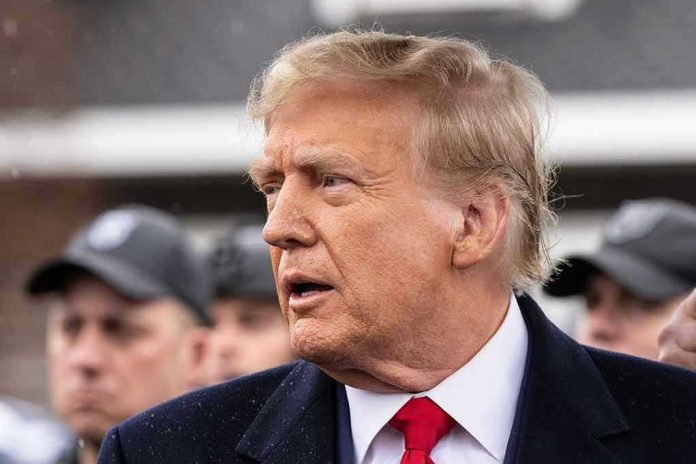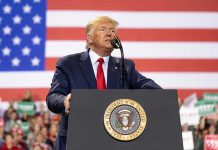
Millions of Americans who rely on food aid woke up to the chilling possibility that their next meal might depend not on need, but on the unpredictable conclusion of a political standoff.
Story Snapshot
- President Trump announced food aid benefits will only be distributed after the government shutdown ends, despite prior assurances of partial disbursement.
- This decision throws uncertainty onto millions who depend on the Supplemental Nutrition Assistance Program (SNAP) for basic sustenance.
- The move spotlights how political brinkmanship can disrupt the most fundamental safety nets in American society.
- Public reactions and policy implications expose deep divides over the intersection of governance, welfare, and responsibility.
Trump’s Shutdown Leverage: Food Aid on the Line
President Donald Trump declared on his Truth Social platform that no food aid benefits would be disbursed until the government shutdown ends, reversing statements from his own administration just a day before. The abrupt announcement instantly upended expectations for millions of Americans who rely on government assistance to put food on the table. Previous White House communications had assured partial benefits would still go out, but this direct pronouncement signaled a hard line: food aid was now a bargaining chip in the ongoing budget impasse.
This tactic places vulnerable families at the center of a high-stakes political game. The mere threat of withholding basic food support during a shutdown intensifies public anxiety, especially among seniors, children, and the working poor. Policy experts point out that using essential welfare programs as political leverage is rare and risks severe social fallout. Many observers argue such measures violate the fundamental American principle that no one should go hungry because of political gridlock.
The Human Cost of Political Brinkmanship
The Supplemental Nutrition Assistance Program (SNAP), commonly known as food stamps, serves over 40 million Americans. For many, these benefits are not supplemental but essential, bridging the gap between hunger and health. With the White House’s new position, food banks and local charities brace for a surge in demand. Community organizers warn that the ripple effects will not be confined to the poorest zip codes; supermarkets, small grocers, and rural supply chains also rely on the predictable flow of SNAP dollars to keep commerce moving in lean times.
Uncertainty breeds fear. Many recipients have no safety net to fall back on, with savings accounts already depleted by inflation and wage stagnation. The anxiety is palpable in online forums and community meetings, where questions about timing, eligibility, and alternatives go largely unanswered. As days turn into weeks, the political standoff threatens to transform from a budget disagreement into a public health crisis.
Public Reaction and Political Calculus
Public reaction to Trump’s declaration has ranged from outrage to resigned cynicism. Critics accuse the administration of holding the most vulnerable hostage, while supporters argue that tough measures are necessary to force legislative compromise. The debate exposes deeper questions about the role of government: Should fundamental programs like SNAP be insulated from shutdowns, or are all expenditures fair game in budget fights?
Social media amplifies the debate. Viral posts highlight stories of families facing empty cupboards, while partisan commentators argue over blame and responsibility. The spectacle reveals a stark divide in American attitudes toward welfare and governance. For many, the episode is a reminder that in the United States, even the right to eat can become subject to political calculation.
Lawmakers face mounting pressure from constituents, advocacy groups, and industry associations to resolve the impasse swiftly. The risk of lasting reputational damage grows with each day that essential benefits are withheld. As both sides dig in, the question remains: how far are politicians willing to go before the cost of leverage outweighs its political utility?
Sources:
Trump not paying SNAP until shutdown ends







